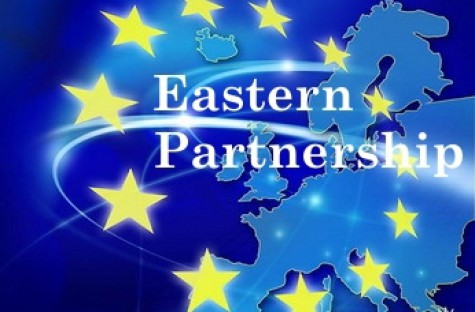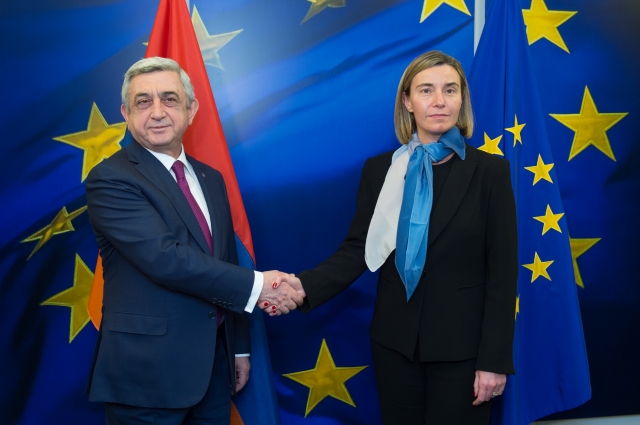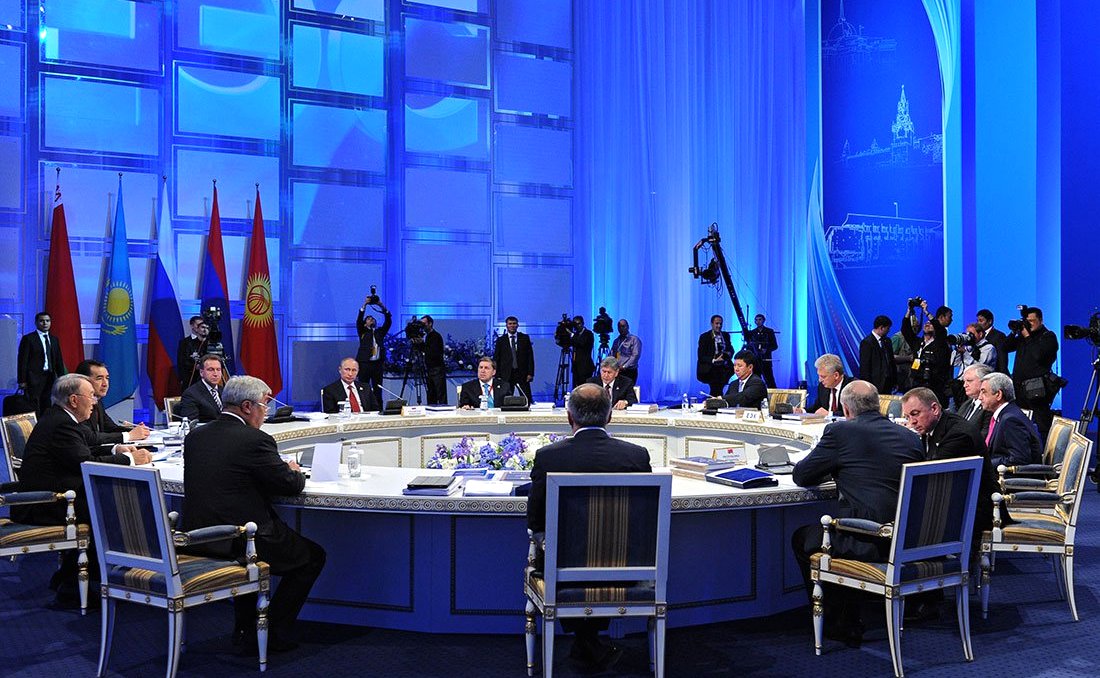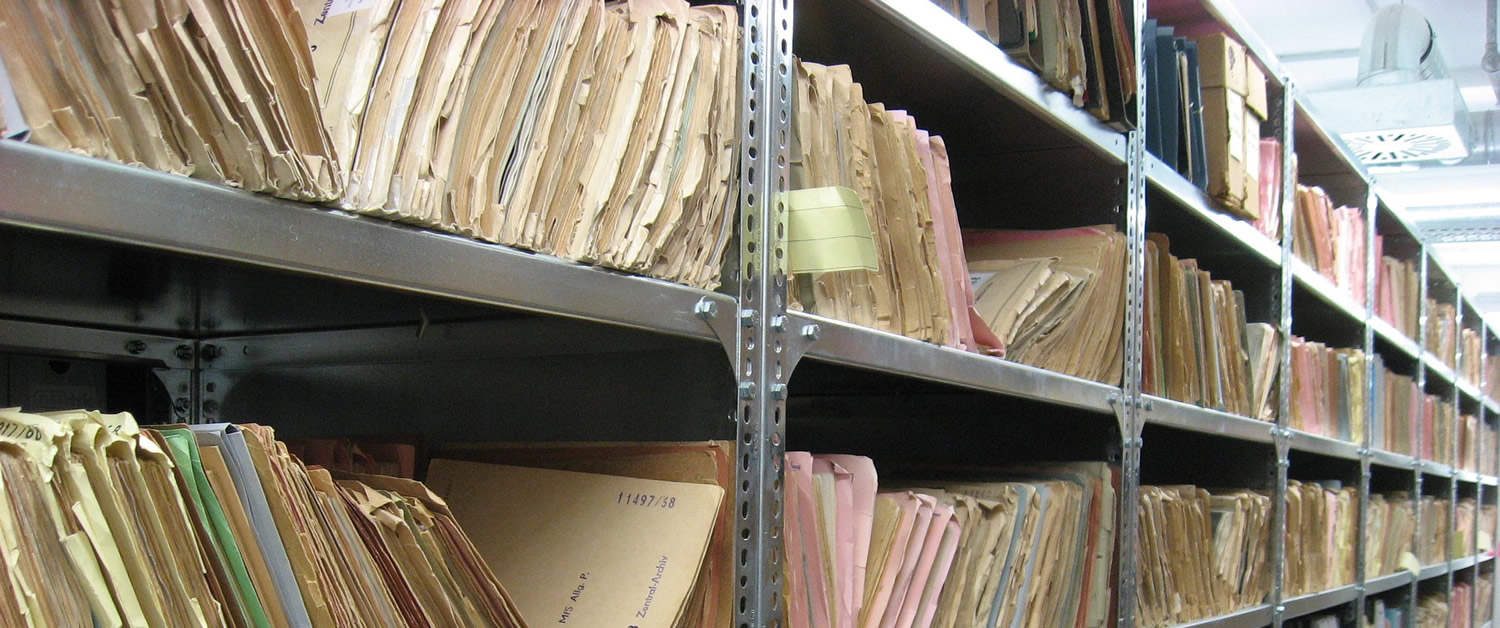
Central Asia has always been under the scope of Iran. Many projects that Iran foresees to implement cover Central Asia as a corridor and Iran plans to cooperate with Central Asian countries. Iran’s motivations behind its Application for membership to the Shangai Cooperation Organization (SCO) clearly show its intention to further engage with the regional actors. Also current high-level talks between Iran and Kazakhstan focus on the potential of the region and the cooperation between Central Asian countries and Iran. The historical Silk Road – One Belt One Road project re-initiated by China once again underlined the importance of the roles of both South Caucasus and Central Asia. Iran and China, which are trying to establish good ties in the need of connectors and markets for further cooperation, are highly interested in Central Asia; China plans to build new rail links to connect Iranian and Chinese markets as well as Chinese and European markets via Iran[1]. Hence, the suggested new high-speed rail links will strengthen economic relations both on regional and bilateral levels. Foreign Minister of Iran Mohammad Javad Zarif stated that “We (Iran) consider no ceiling for the expansion of relations with regional countries whether in the Caucasus or in Central Asia,” in a joint press conference with his Kazakh counterpart Foreign Minister Yerlan Idrisov on 11th of April[2] underscoring Iran’s high level of interest in the Central Asia and Caucasus in terms of boosting cooperation.
On the 10th of April, Kazakhstan-Iran Business Council took place in Tehran. Kazakh and Iranian officials signed nine Memorandums of Understanding covering areas such as extradition, plant quarantine and protection, technological cooperation, transportation and transit in the Silk Road, investments and so on.[3] The Investment Fund of Kazakhstan and Iran's Kaveh Glass Industry Group also signed an agreement for a $200 million-project concerning a sodium carbonate production plant in Kyzylorda.[4] Additionally Iranian and Kazakh companies agreed to cooperate in various sectors such as hydrocarbons and electricity. The total volume of the agreements is expected to reach 1 Billion US Dollars.
One of the important agenda items during the talks was the cooperation among the Caspian Sea littoral countries and the legal status of the sea, which has been shelved as an unsolved issue after the efforts made in the 1990s and early 2000s.[5] Since the dissolution of the Soviet Union, five countries were not able to reach to an agreement on the legal status of the Caspian Sea. Emergence of the new littoral states in 1991 such as Kazakhstan, Azerbaijan and Turkmenistan challenged the existing agreements on the Caspian Sea between Iran and Russia. In the last three decades, there has been a little progress on the usage of the resources in the Caspian Sea basin. Iranian Foreign Minister Mohammad Javad Zarif further stated that Iran pursues negotiations to determine the legal regime of the Caspian Sea with seriousness and strong interest. FM Zarif added that the “The Caspian Sea is the sea of peace and friendship among littoral countries and should prepare grounds for trade and economic cooperation among them,”[6] in order to underline the issue and Iran’s vision on the future of the basin. Likewise, Foreign Minister of Kazakhstan said “the Caspian Sea can prepare the ground for the expansion of trade and economic ties among its littoral states” supporting FM Zarif’s point. Unconventional threats, such as contamination of the Caspian Sea and militarization in the region, deriving from security dilemmas amongst littoral states are among the main threats which need upmost attention.[7] Therefore cooperation among the littoral countries is essential for the sake of regional stability.
Kazakhstan and Iran are focusing on the regional transportation corridor projects as well, together with the other partner countries. The International North–South Transport Corridor and Iran-Turkmenistan-Kazakhstan railway, which is already operational, aim to connect Asia, Persian Gulf and Europe via Central Asia and Iran. In February 2016, the first cargo train became operational carrying Cargo from China to Iran and completed its 6,462 -mile journey approximately in 14 days.[8] This route used to take up to 45 days before the new rail road.
Within this context, at Kazinform, which was held on April 25th at Beijing, China-Kazakhstan-Turkmenistan-Iran railroad was presented in order to underline the importance of the successful project not only for the region, but also for Europe. The event was organized by the Embassies of Kazakhstan and Turkmenistan to China and representatives of Kazakhstan Temir Zholy Company.[9] Vice President of Chinese Railway Huang Min stated that “This is the first international freight train sent to the Middle East for the purpose of expanding south vector of China-Europe container train,”[10] drawing attention on the new project. At the meeting, Ambassador of Turkmenistan said “In future, we plan to hold similar meetings in other cities of China, namely in Yiwu, Xi’an, Shanghai, Urumqi, to adjust our interests in this issue. In two days, Lianyungang city will host a Turkmen-Chinese dialogue, during which our delegation will continue presenting its transit and transport potential,” declaring the regional willingness to continue building on such projects. According to Ambassador of Kazakhstan to China Shakhrat Nuryshev, “removal of sanctions from Iran opens new prospects for the development of railroad transportations to Iran and back.”[11] The connection made it possible to further develop the corridor.
Both Kazakhstan and Iran are aware of the positive outcomes and the potential of the regional integration projects. President of Kazakhstan, Nursultan Nazarbayev stated many times that Kazakhstan supports the idea of a “nuclear weapons free world”.[12] Therefore, post-nuclear deal gave a great chance to Iran and Kazakhstan to catch a momentum on the relations. Kazakhstan land-locked between China and Russia, Iran a country that lived under the sanctions for many years will benefit from cooperation; it is a win-win situation for the regional actors. Turkey also can contribute in the projects with its important geo-political situation as being the hub between East and the West but also as a country integrated with the West and maintaining historical, traditional, social ties with Central Asia.
Photo: The Guardian
[1] Ramachandran, Sudha “Iran, China and the Silk Road Train”, The Diplomat, 30.03.2016, Access date: 02.05.2016
[2] “Iran sees no limit to ties in Caucasus, Central Asia: FM”, PressTV, 13.04.2016, Access: 02.05.2016
[3] “Iran-Kazakhstan trade to touch fresh high of $1bn”, Mehr News Agency, 13.04.2016, Access: 02.05.2016
[4] ibid
[5] 1st Caspian Summit in Ashgabat in 2002; 2nd Caspian Summit in Tehran in 2007; 3rd Summit in Baku in 2010; 4th Caspian Summit in Astrakhan in 2014
[6]“Iran sees no limit to ties in Caucasus, Central Asia: FM”, PressTV, 13.04.2016, Access: 02.05.2016
[7] Öğütcü, Özge N. Brief report, NISA's Conference on "Geopolitical review of the Caspian: new role for Azerbaijan", The European Azerbaijan Society, June 2015
[8] Putz, Catherina “First Direct Train from China Arrives in Iran”, The Diplomat, 16.02.2016, Access: 04.05.2016, http://thediplomat.com/2016/02/first-direct-train-from-china-arrives-in-iran/
[9] “China-Kazakhstan-Turkmenistan-Iran railroad presented in Beijing”, Inform.kz, 26.04.2016, Access: 04.05.2016, http://www.inform.kz/eng/article/2897009
[10] “China-Kazakhstan-Turkmenistan-Iran railroad presented in Beijing”, Inform.kz, 26.04.2016, Access: 04.05.2016, http://www.inform.kz/eng/article/2897009
[11] ibid
[12] Idrissov, Erlan “Kazakhstan: Nuclear Weapons Free for 20 Years”, The Diplomat, 24.04.2015, Access: 06.05.2016
© 2009-2025 Center for Eurasian Studies (AVİM) All Rights Reserved
No comments yet.
-
 ARMENIA IN EUROVISION 2015
ARMENIA IN EUROVISION 2015
Özge Nur ÖĞÜTCÜ 19.02.2015 -
 EUROPEAN UNION EASTERN PARTNERSHIP POLICY AND RUSSIA’S INCREASING INFLUENCE
EUROPEAN UNION EASTERN PARTNERSHIP POLICY AND RUSSIA’S INCREASING INFLUENCE
Özge Nur ÖĞÜTCÜ 13.03.2014 -
 A NEW PAGE FOR ARMENIA-EU RELATIONS?
A NEW PAGE FOR ARMENIA-EU RELATIONS?
Özge Nur ÖĞÜTCÜ 06.04.2017 -
 EURASIAN ECONOMIC UNION AND KYRGYZSTAN
EURASIAN ECONOMIC UNION AND KYRGYZSTAN
Özge Nur ÖĞÜTCÜ 10.01.2017 -
TURKIC COUNCIL AND EURASIAN COOPERATION IN THE LIGHT OF DEVELOPMENTS IN THE REGION
Özge Nur ÖĞÜTCÜ 24.02.2015
-
THE MONUMENT IN OTTAWA
Ömer Engin LÜTEM 24.09.2012 -
CONFIDENCE BUILDING MEASURES IN ASIA
Alev KILIÇ 29.03.2013 -
 24TH MEETING OF THE COUNCIL OF HEADS OF STATE OF THE SHANGHAI COOPERATION ORGANIZATION
24TH MEETING OF THE COUNCIL OF HEADS OF STATE OF THE SHANGHAI COOPERATION ORGANIZATION
Gülperi GÜNGÖR 09.08.2024 -
 APEC LIMA SUMMIT
APEC LIMA SUMMIT
Seyda Nur OSMANLI 28.01.2025 -
 HISTORICAL ARCHIVES OF THE ARMENIAN PATRIARCHATE OF ISTANBUL
HISTORICAL ARCHIVES OF THE ARMENIAN PATRIARCHATE OF ISTANBUL
AVİM 04.04.2019
-
25.01.2016
THE ARMENIAN QUESTION - BASIC KNOWLEDGE AND DOCUMENTATION -
12.06.2024
THE TRUTH WILL OUT -
27.03.2023
RADİKAL ERMENİ UNSURLARCA GERÇEKLEŞTİRİLEN MEZALİMLER VE VANDALİZM -
17.03.2023
PATRIOTISM PERVERTED -
23.02.2023
MEN ARE LIKE THAT -
03.02.2023
BAKÜ-TİFLİS-CEYHAN BORU HATTININ YAŞANAN TARİHİ -
16.12.2022
INTERNATIONAL SCHOLARS ON THE EVENTS OF 1915 -
07.12.2022
FAKE PHOTOS AND THE ARMENIAN PROPAGANDA -
07.12.2022
ERMENİ PROPAGANDASI VE SAHTE RESİMLER -
01.01.2022
A Letter From Japan - Strategically Mum: The Silence of the Armenians -
01.01.2022
Japonya'dan Bir Mektup - Stratejik Suskunluk: Ermenilerin Sessizliği -
03.06.2020
Anastas Mikoyan: Confessions of an Armenian Bolshevik -
08.04.2020
Sovyet Sonrası Ukrayna’da Devlet, Toplum ve Siyaset - Değişen Dinamikler, Dönüşen Kimlikler -
12.06.2018
Ermeni Sorunuyla İlgili İngiliz Belgeleri (1912-1923) - British Documents on Armenian Question (1912-1923) -
02.12.2016
Turkish-Russian Academics: A Historical Study on the Caucasus -
01.07.2016
Gürcistan'daki Müslüman Topluluklar: Azınlık Hakları, Kimlik, Siyaset -
10.03.2016
Armenian Diaspora: Diaspora, State and the Imagination of the Republic of Armenia -
24.01.2016
ERMENİ SORUNU - TEMEL BİLGİ VE BELGELER (2. BASKI)
-
AVİM Conference Hall 24.01.2023
CONFERENCE TITLED “HUNGARY’S PERSPECTIVES ON THE TURKIC WORLD"









